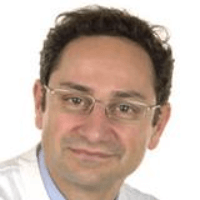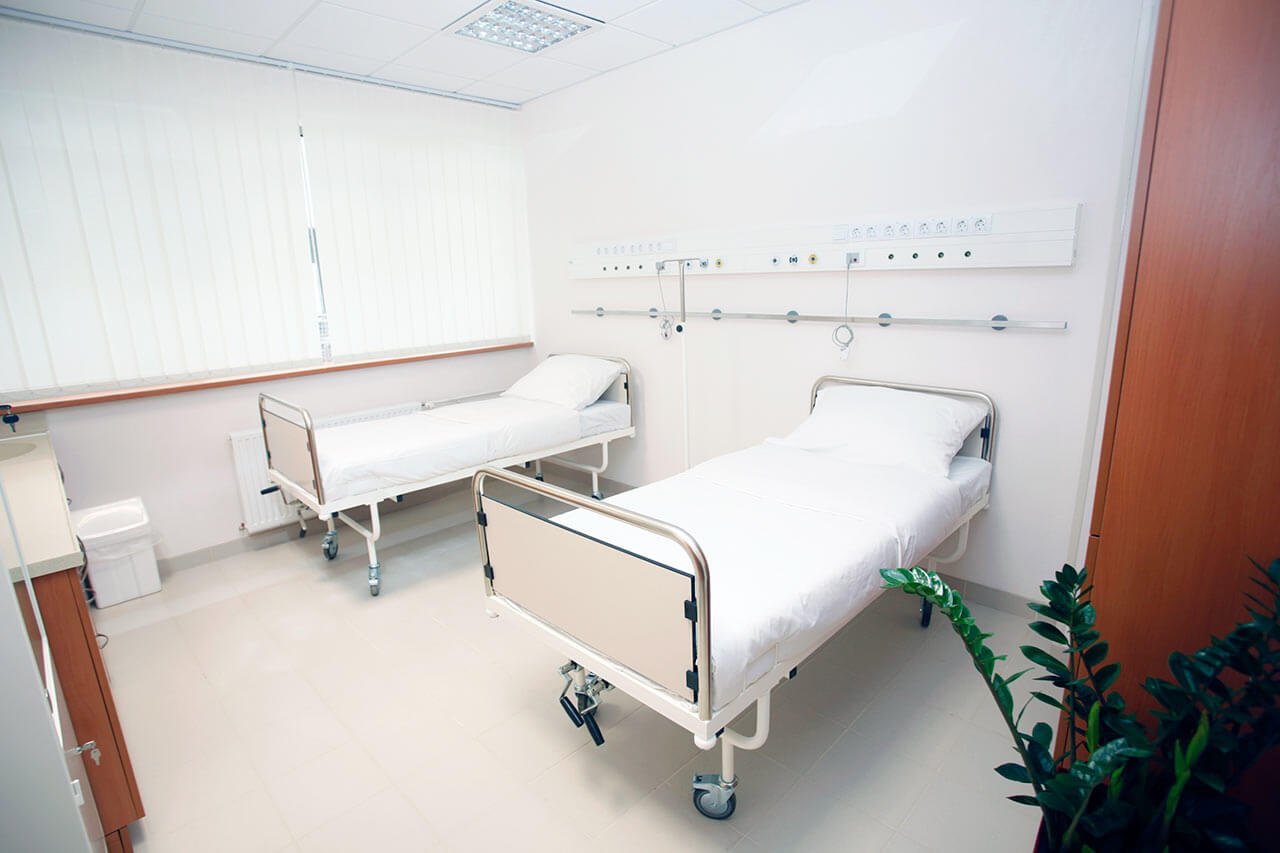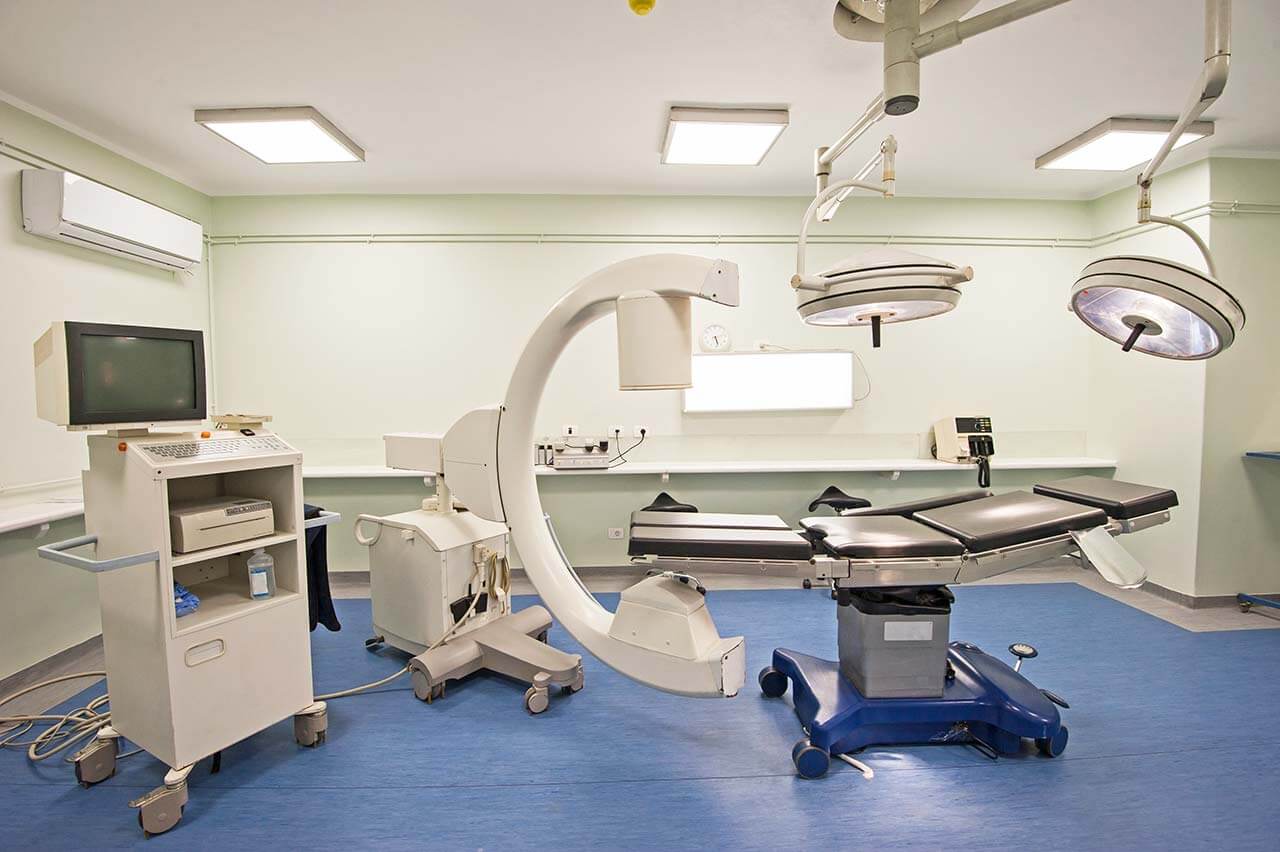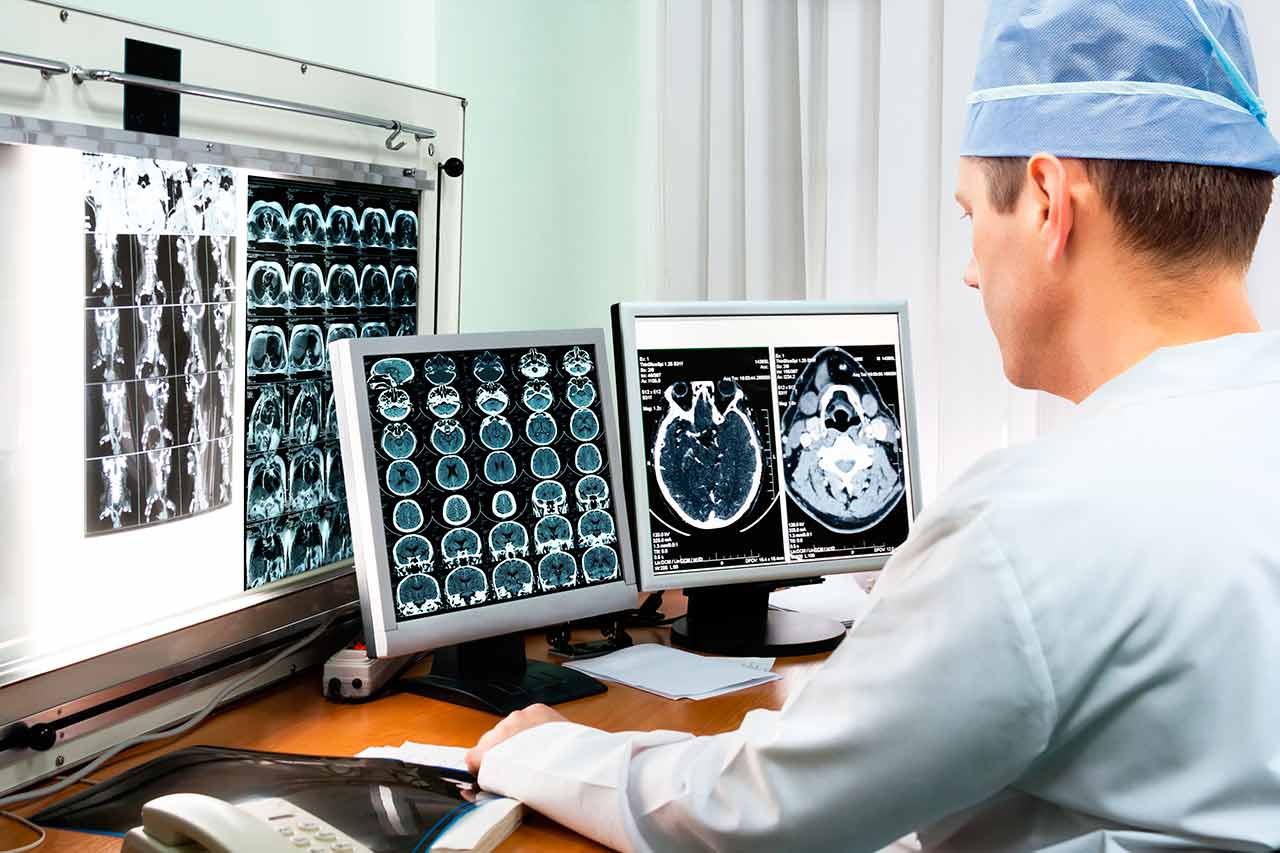
The program includes:
- Initial presentation in the clinic
- clinical history taking
- physical examination
- review of medical records
- laboratory tests:
- complete blood count
- general urine analysis
- biochemical analysis of blood
- indicators of inflammation (CRP, ESR)
- indicators blood coagulation
- abdominal ultrasound
- gastroscopy with biopsy
- analysis of hp (helicobacter pylori)
- resection of gastric polyps
- symptomatic treatment
- control examinations
- the cost of essential medicines and materials
- nursing services
- nutrition recommendations
- full hospital accommodation
- explanation of future recommendations
Required documents
- Medical records
- Esophagogastroduodenoscopy (EGD) (if available)
Service
You may also book:
 BookingHealth Price from:
BookingHealth Price from:
About the department
The Department of Pediatric and Adolescent Medicine, General Pediatrics at the University Hospital Muenster offers the full range of comprehensive diagnostics and effective treatment of various diseases in children of all age groups. The physicians of the department specialize in the treatment of rare pathologies, for example, cystic fibrosis. The experienced pediatricians of the department apply in their clinical practice only reliable and the most effective treatment methods, which ensure an optimal treatment outcome. In addition, the department has at its disposal an excellent infrastructure, adapted for the treatment of children, which makes the hospitalization period easy for patients. The outstanding quality of medical services rendered by the department is confirmed by the prestigious quality certificate Ausgezeichnet.FÜR KINDER. The department is headed by Prof. Dr. med. Heymut Omran.
The specialists of the department participate in numerous research projects of the national and international levels, which allows them to introduce the most advanced achievements into clinical practice in the field of pediatrics. In addition, another contributing factor to the successful clinical activities is openness and friendly attitude towards young patients and their relatives. The department also provides detailed consultations on all the questions of interest, and peculiarities of any pathologies, as well as inform patient’s parents about the possible treatment options, their advantages, etc.
The department’s service range includes:
- Interdisciplinary treatment of rare pathologies in children and adolescents
- Diagnostics and treatment of congenital metabolic disorders
- Phenylketonuria
- Homocystinuria
- Urea metabolism disorders
- Organic aciduria
- Glycogenosis
- Galactosemia
- Mucopolysaccharidosis
- Nephropathic cystinosis
- Carbohydrate-deficient glycoprotein syndrome
- Hereditary lipid metabolism disorders
- Congenital disorders of the connective tissue (for example, Marfan syndrome, Ehlers-Danlos syndrome, osteogenesis imperfecta)
- Rare metabolic disorders (for example, congenital glycosylation disorders, progeria, pediatric arterial calcification, disorders of vitamin B12 metabolism)
- Methods of biochemical and enzymatic analysis
- Cell culture methods
- Molecular and genetic diagnostic methods
- Selective screening for suspected metabolic disorders, including in newborns
- Emergency treatment of decompensated metabolic crises (including dialysis, for example, hemofiltration, hemodiafiltration)
- Special diets for patients with metabolic disorders
- Long-term care within special counseling
- Psychosocial care
- Diagnostics and treatment of cystic fibrosis
- Sweat test
- Molecular and genetic testing
- Pulmonary function test using body plethysmography
- Drug therapy
- Intensive care for premature babies, newborns and babies with high risk of pathologies
- Pediatric intensive care
- Respiratory therapy, including mechanical ventilation
- Neurointensive care, traumatic brain injuries
- Severe infections, shock conditions, therapy for circulatory disorders
- Kidney failure and renal replacement therapy
- Artificial nutrition
- Syndromic and rare diseases
- Diagnostics and treatment of congenital and acquired kidney diseases
- Acute and chronic kidney failure in children
- Dialysis
- Kidney transplantation
- Congenital/hereditary kidney diseases
- Polycystic kidney disease, especially nephronophthisis
- Urine flow disorders
- Neurogenic disorders of bladder emptying
- Acute and chronic kidney failure in children
- Diagnostics and treatment of lung and airway diseases
- Chronic cough
- Respiratory distress syndrome
- Bronchial asthma
- Respiratory failure
- Primary ciliary dyskinesia (diagnostics of this pathology is available only in a few medical institutions in Europe)
- Cystic fibrosis
- Pulmonary function testing
- Diagnostics and treatment of gastrointestinal diseases
- Celiac disease
- Food allergies
- Inflammatory bowel diseases (Crohn's disease, ulcerative colitis)
- Infectious gastroenteritis
- Congenital diarrhea (microvilli atrophy)
- Intestinal dys- and aganglionosis
- Familial adenomatous polyposis (FAP)
- Gastroesophageal reflux disease
- Gastritis caused by Helicobacter pylori
- Autoimmune hepatitis
- Chronic hepatitis B and C
- Primary sclerosing cholangitis
- Biliary tract malformations
- Portal vein thrombosis
- Liver cirrhosis
- Chronic pancreatitis
- Constipation
- Functional bowel diseases
- Daily pH-metry
- Multichannel intraluminal impedancemetry
- Manometry
- Rectal aspiration biopsy
- Small intestine biopsy
- Liver biopsy
- Esophagogastroduodenoscopy
- Colonoscopy
- Breath tests for fructose, lactose, and/or sorbitol intolerance
- Breath tests for Helicobacter pylori
- Assessment of inflammatory markers in stool
- Treatment with special diets (for celiac disease, allergic enteropathies)
- Parenteral nutrition
- Drug therapy (for example, in chronic inflammatory bowel diseases)
- Interventional endoscopy
- Care for patients after transplantation, preparation for liver transplantation
- Planning of surgical interventions and postoperative care
- Diagnostics and treatment of endocrine diseases
- Growth disorders (for example, short stature, tall stature)
- Adrenal dysfunction (for example, Addison's disease)
- Thyroid dysfunction (for example, goiter, hypo-, hyperthyroidism)
- Puberty disorders (for example, premature puberty, hypogonadism)
- Care for children and adolescents with gender dysphoria (in collaboration with the Department of Pediatric and Adolescent Psychiatry)
- Calcium and phosphorus metabolism disorders (for example, hypoparathyroidism)
- Endocrinological effects of malignant diseases
- Rare diseases (for example, Ulrich-Turner syndrome, Klinefelter syndrome, McCune-Albright syndrome, multiple endocrine neoplasia)
- Diagnostics and treatment of diabetes mellitus (all types of insulin therapy)
- Diabetes mellitus type 1
- Diabetes mellitus type 2
- Hereditary forms of diabetes (MODY-diabetes)
- Neonatal diabetes
- Diabetes mellitus as a concomitant disease (for example, in cystic fibrosis, oncological, syndromal diseases)
- Diagnostics and treatment of neuropediatric diseases
- Epilepsy
- Syndromic disorders, retardation syndromes
- Metabolic diseases
- Neuromuscular diseases (for example, Duchenne muscular dystrophy, spinal muscular atrophy)
- Neurodermal diseases
- Congenital anomalies of the central nervous system
- Benign and malignant brain tumors
- Stroke
- Cerebrovascular diseases
- Other diseases, diagnostic and therapeutic options
Curriculum vitae
Education
- 1986 - 1987 Alternative service at German Red Cross.
- 1987 - 1994 Study of Human Medicine at the Albert Ludwig University of Freiburg.
Scholarships and Medical Training Abroad
- Since 1988 Member of the German Scholarship Foundation (scholar of Studienstiftung des deutschen Volkes).
- 1990 - 1991 Medical training at the University of Manchester, England, UK.
- 1993 - 1994 Scholarship of the state of Baden-Württemberg for the University of Massachusetts, USA.
Professional Career
- 1994 - 1996 Internship in the Department of Pediatrics at the University Hospital Freiburg.
- 1996 - 2001 Research Fellow in the Department of Pediatrics at the University Hospital Freiburg.
- 2001 Medical Specialist in Pediatrics and Adolescent Medicine.
- 2002 Senior Physician at the Center for Pediatrics and Adolescent Medicine, Freiburg.
- 2002 Habilitation and Venia legendi in Pediatrics.
- 2004 Deputy Head of the Department of Neuropediatrics and Muscular Diseases.
- 2006 Appointed Extraordinary Professor in Pediatrics.
- 2007 Adjunct Professor of the Department of Pediatrics, University of North Carolina, USA.
- 2010 Head of the Department of Pediatric and Adolescent Medicine, General Pediatrics, W3 Professor for Pediatric and Adolescent Medicine at the University Hospital Muenster.
Clinical Training
- 2006 Board certification in Neuropediatrics.
- 2008 Additional qualification in Pediatric Endocrinology and Diabetology.
- 2009 Additional qualification in Pediatric Pulmonology.
Membership in Scientific Societies
- American Society for Human Genetics (ASHG).
- German Society of Pediatrics and Adolescent Medicine (DGKJ).
- German Society for Clinical Neurophysiology and Functional Imaging (DGKN).
- German Society for Neuropediatrics (GNP).
- European Kidney Research Association (EKRA).
- International Pediatric Nephrology Association (IPNA).
- German Academy of Sciences Leopoldina.
Scientific Awards
- 1999 Else Kröner Fresenius Award.
- 2001 Award of the European Renal Association for "Mapping of the human adolescent nephronophthisis gene locus and demonstration of synteny to the pcy mouse model".
- 2002 Friedrich Linneweh Award.
- Young Investigator Award of the European Society of Human Genetics for "Mutations in DNAH5 cause primary ciliary dyskinesia and randomization of left-right asymmetry".
- 2004 Frank Majewski Award.
- 2006 Manes Kartagener Award.
- 2007 Johannes Wenner Award.
- 2015 Eva Luise Köhler Award.
Expert Review Activities
- Selected journals: Nature Genetics; Nature; Science; Nature Medicine; Nature Cell Biology; Neuron; American Journal of Human Genetics; Annals of Neurology; American Journal of Respiratory and Critical Care Medicine; Journal of Cell Biology; Proceedings of the National Academy of Science.
- Scientific Organizations: German Research Foundation (Germany); INSERM (France), Telethon (Italy), Uitzicht (Netherlands), Wellcome Trust (UK).
- Expert Advisor of the Human Genome Nomenclature Committee (HGNC).
Photo of the doctor: (c) Universitätsklinikum Münster
About hospital
According to the Focus magazine, the University Hospital Muenster ranks among the top German hospitals!
The hospital belongs to the most prestigious medical institutions in Germany. The hospital is distinguished by a high professionalism of its doctors, state-of-the-art technological equipment and the availability of the most advanced diagnostic and therapeutic capabilities ensuring the first-class medical services. The hospital integrates more than 30 specialized departments, as well as numerous institutes and centers, thus representing all the specialties of modern medicine. The hospital treats more than 64,000 inpatients and 500,000 outpatients every year, which is an indisputable evidence of the highest quality of medical services.
The medical team of the hospital, consisting of more than 10,000 employers, is committed to preserving the physical health of patients, providing them with psychological support and compassionate attitude throughout the entire therapeutic process.
The hospital has succeeded in all specialties of medicine, however, main areas of its specialization include oncology, treatment of cardiovascular, neurological diseases, transplant medicine, psychiatry and psychosomatics, pediatrics with a special focus on rare diseases in children, traumatology, orthopedics, prenatal medicine, and reproductive medicine. In addition, key importance is given to scientific research and training of medical students, so that the specialists of the hospital make a momentous contribution to the development of medicine as a whole.
Photo: (с) depositphotos
Accommodation in hospital
Patients rooms
The patients of the University Hospital Muenster live in single or double rooms. The rooms are made in bright colors and modern design. Each room has an ensuite bathroom with shower and toilet. The standard room includes an automatically adjustable bed, a bedside table, a table and chairs for receiving visitors, a telephone and a TV. The hospital offers access to the Internet. If desired, the patient can also stay in the enhanced-comfort room.
Meals and Menus
The patients of the hospital are offered a tasty and balanced three meals a day: breakfast, lunch and dinner. The menu always features diet and vegetarian dishes. If for any reason you do not eat all the food, you will be provided with an individual menu. Please inform the medical staff about your dietary preferences prior to the treatment.
Further details
Standard rooms include:
Religion
Religious services are available upon request.
Accompanying person
During the inpatient program, an accompanying person may stay with you in a room or at the hotel of your choice.
Hotel
During the outpatient program, you can live at a hotel of your choice. Managers will help you to choose the most suitable options.
The hospital offers a full range of laboratory tests (general, hormonal, tests for infections, antibodies, tumor markers, etc.), genetic tests, various modifications of ultrasound scans, CT scans, MRI and PET / CT, angiography, myelography, biopsy and other examinations. Treatment with medications, endoscopic and robotic operations, stereotaxic interventions is carried out here, modern types of radiation therapy are also used. The hospital offers patients all the necessary therapeutic techniques.
- Stereotactic radiotherapy, including intracranial one
- Thulium and holmium laser enucleation of the prostate
- HIPEC for peritoneal cancer
- Imlantation of mechanical heart support systems
- Assisted reproductive technologies
These are arthrosis and sports injuries of the joints, benign neoplasms and malignant tumors of various localizations, spinal injuries, osteoporosis, benign prostatic hyperplasia, urolithiasis, inflammatory bowel disease and other pathologies.
- Traumatology and hand surgery
- Urology
- General and abdominal surgery
- Cardiology and cardiac surgery
- Obstetrics and gynecology
The hospital's team consists of more than 10,000 highly qualified employees.






